You have the right to video tape a police officer; or do you?
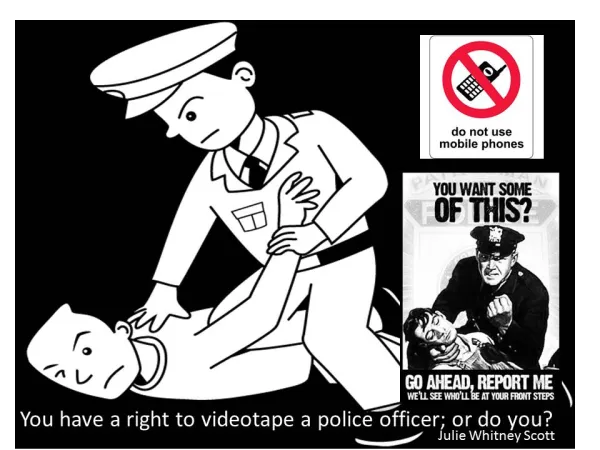
Once upon a time if you were stopped by the police, and for whatever reason, found yourself being the victim of police brutality, even with witnesses, you would lose in a court of law based on the “word” of the police officer(s) involved.
If the police officer, after he shot a “suspect,” called in to the station to report “Man down, man shot, he took my Taser,” it would be assumed by the dispatcher that the officer needed back-up and shot the “suspect,” eight times, in self-defense. The news and media reports would tell the public that the “suspect” died as a result of the police officer using “necessary force” to protect himself. Although many of us who heard the police explanation and the news reports didn’t believe we were getting the truth, there wasn’t much we could do or say about it and eventually, like all of the other times, the story would fade away.
The Storm Is Over

Lightning flashed across Kentucky skies a few nights ago. "I love storms," said my roommate, Gypsi, her eyes bright with excitement. Thunder boomed over the Kentucky hills and Atwood Hall, here in Lexington, KY's federal prison. I fell asleep thinking of the gentle, haunting song our gospel choir sings: "It's over now, It's over now. I think that I can make it. The storm is over now."
I awoke the next morning feeling confused and bewildered. Why had the guards counted us so many times? "That was lightning," Gypsi said, giggling. The guards shine flashlight in our rooms three times a night, to count us, and I generally wake up each time; that night the storm was also a culprit.
As the day continued we saw large pools of water had collected at each entrance to Atwood Hall. Prisoners from drought-ridden areas wish they could collect the rainwater and send it home. Fanciful notions, but of the kind, at least, that can help us remember priorities. I suppose it's wise, though, to focus on what can be fixed. The elevator here, for instance.
Should the Police Be Armed?
The cellphone video “reality footage” just doesn’t stop. Black men are shot, killed, handcuffed. The shortcomings of their prematurely terminated lives soon become public knowledge, vaguely justifying the shocking wrongness of the officer’s action — always poisoning the grief.
The family, the loved ones, the sympathetic sector of the American (and global) public demand “justice.” Even when they get it, or sort of get it, in the form of an arrest or some official expression of regret, the victim — the human being they valued — is still dead.
Nothing changes.
At least it seems as though nothing changes, but of course change, in the form of outrage, revulsion, disbelief — and, ultimately, awareness — is stirring in the collective mind. How it will manifest in the form of specific social policy is, of course, unknown. The status quo, after all, has plenty of defenders — and they’re armed.
Angry White Men: American Masculinity at the End of an Era by Michael Kimmel
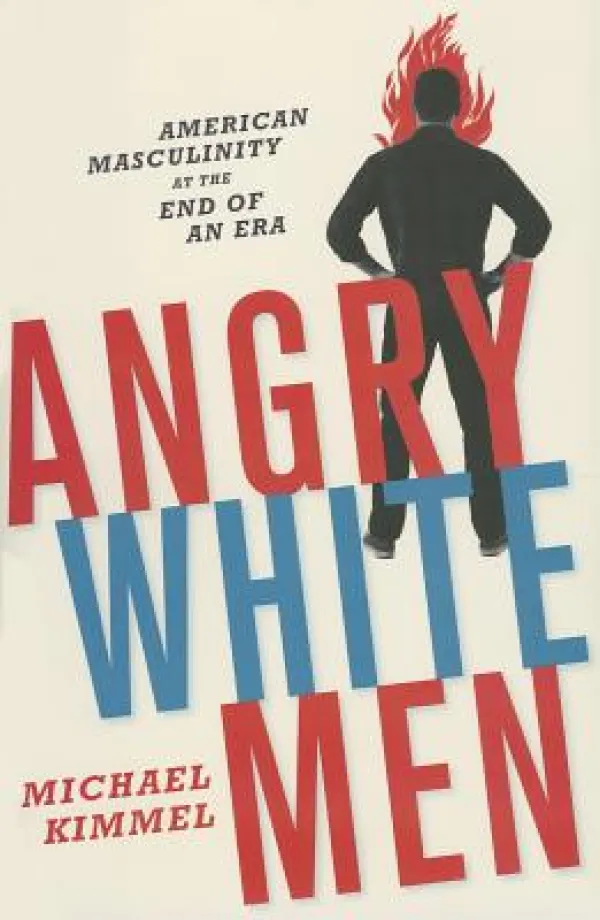
It happened on August 29, 1786. Protestors, many of whom were veterans of the Revolutionary War, were angry about the distressed economic circumstance that developed in the aftermath of the war. Hard currency was in short supply, and this caused a credit squeeze. The government had come down hard on citizens in an effort to ameliorate the debt problem, and there were court hearings for those who could not or would not pay their taxes or other debts. Led by Daniel Shays, a veteran, protestors shut down courts in five cities, bringing the hearings to a halt. Shays’ followers also began raising an army. When some of the rebels were captured, their colleagues began arming; in response, a militia unit raised a private army and routed most of the rebels. Although there were scattered protests into the next summer, the rebellion was pretty much over by February 1787.
Stop Smoking the Democrack
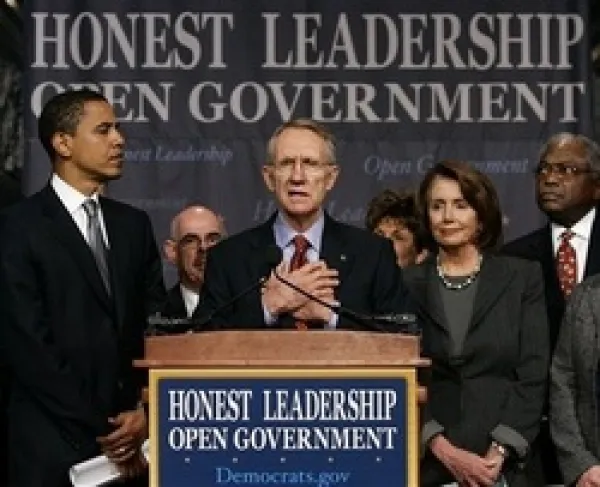
By Cindy Sheehan and David Swanson
http://davidswanson.org/node/4709
The U.S. government is toying with a war with nuclear Russia while already waging wars in Iraq and Afghanistan, having done severe damage to Libya, Yemen, Pakistan, and Somalia. Military spending is climbing ever higher. Presidential war powers are ever more extreme. The proliferation of nuclear technology is combining with the ease and secrecy of drone wars to raise the risk of a Dr. Strangelove finish to the human species. And, let's face it, you had more time to give a damn when the president was a Republican.
Wealth vs. Money

“There is no patent. Could you patent the sun?”
The words are those of Jonas Salk, developer of the polio vaccine, speaking to Edward R. Murrow in 1955, as quoted recently in an essay by Paul Buchheit. What was he thinking? Six decades later, the words have such a counter-resonance with prevailing thought. They exude an old-fashioned humility and innocence, like . . . striking it rich isn’t necessarily the ultimate point of life?
I read these words and sense so much spilled wisdom in them, so much wasted hope. The world we’ve created is governed these days by two unquestioned principles: commodify and dominate. And it’s chewing up the resources that used to belong to every occupant of the planet.
A Personal Memorial to Leonard Nimoy
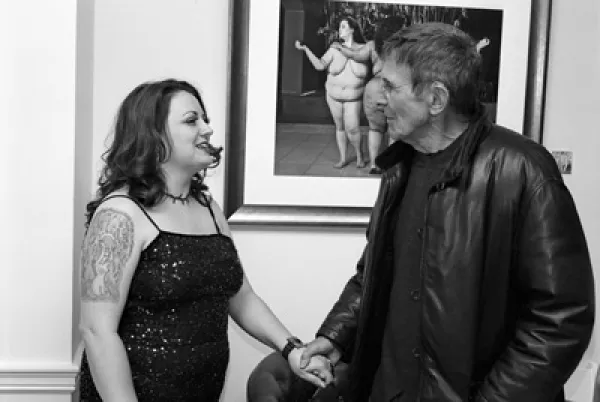
This article is an expression of my deepest condolences to the family, friends and colleagues of Leonard Nimoy, and illuminating my friendship with him.
Leonard contacted Heather after Zoe Wiseman approached him at his exhibit for The Shekina Project (an earlier book of photographs). Zoe asked him why he only used thin models, and would he be interested in photographing women with larger bodies. He said, “Yes.” Zoe introduced him to Fat-Bottom Revue.
In February 2005 I was accepted into the first all plus-sized touring burlesque troupe, The Fat-Bottom Revue of San Francisco. In September 2005, while touring the Southwest with blues singer Candye Kane, we stopped in Los Angeles. This photoshoot began a friendship between myself and Mr. Nimoy.
Rocka My Soul
“I wanna be ready . . .”
And suddenly the glass case shattered. You know the one, perhaps. I’d been agitated by it for the past hour or so, sitting as I was maybe 25 rows back from the stage at Chicago’s ornate Auditorium Theater, watching the Alvin Ailey troupe dance their hearts out, moving their bodies with such lithe precision and grace.
A huge hunger, a wanting, a hope stirred in the cage inside my breast. “Appreciating” a “performance” wasn’t enough. Oh God. This great inner wanting yearned for a freedom we don’t much talk about these days, in our relative affluence and comfort, but the music and the movement of the Alvin Ailey American Dance Theater, with its roots in Africa, in Gospel revival — in growing up black in America — went so much deeper than that. I didn’t want to feel separated from the dancers, some disengaged spectator watching fine art in motion behind the glass case of culture. That felt so wrong.
Veteran Suicides…help in some way for what you hold dear

<i>Gena Smith is a combat veteran of Iraq, and suffers from both PTSD and MST (Military Sexual Trauma). She’s a veteran advocate who volunteers for VETWOW, Veteran Women Organizing Women, which has over 3,000 members and nearly all are victims of MST. As the war on terror pushes through a second decade, it’s becoming tragically clear that for many veterans, the only way to deal with MST or combat PTSD is suicide.</i>
Frat Boys on the Bus
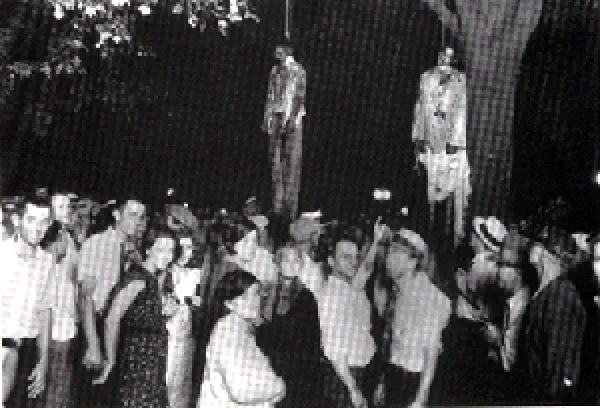
“You can hang him from a tree, but he can never sign with me . . .”
Yeah, something had to happen. The cellphone video went public and the frat boys on the bus, who were just having a little politically incorrect fun, y’know, singing about Jim Crow exclusionary practices and, well, lynching, suddenly found themselves thrust into a national context, embarrassing the hell out of their fraternity and their school.
Something had to happen, but I don’t think it was “zero tolerance” — that is to say, the immediate shutting of the door on a shocking, humiliating revelation that some students have bad attitudes and haven’t learned the national lesson: overt, casual racism against African-Americans is wrong.
